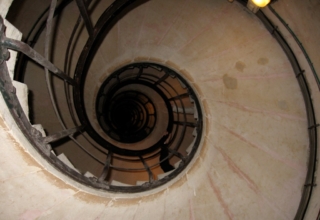
The second treatment, or rather tool is, paradoxically, more judgments. Stuart Heller, PhD, a world-class teacher of coaches and leaders, tells the story of one of his insights into effective judging. Many years ago, he was in a conversation with a circuit court judge and he asked (with curiosity, no doubt!) how the judge was able to make such difficult decisions. The judge revealed his secret was to build larger, definitive judgments by making many smaller, provisional judgments; “Guilty” and “Innocent” grew from many other judgments, such as “I don’t believe that witness” and “He seemed to tell the truth about something difficult.”
In healthcare, for example, instead of the large decision that, “This treatment process review is a total failure,” a more effective, cumulative judgment might note that the deadline was missed, that the numbers were wrong, that the department head wasn’t included early enough to identify crucial requirements, and, despite these issues, that generally physician relationships have been improved due to the conversations about the process.
Not only do leaders tend to make better big decisions, but also, by accumulating small judgments, leaders create and keep more alternatives to take action. For example, considering the judgments above, instead of a “total failure,” the physician leader who makes more decisions has options for improved morale and increased collaboration among physicians in the department, as well as insights about how to include the department head in future efforts.
More, curiosity and cumulative decision-making work hand-in-hand. More questions permit for many incremental judgments to build solid, substantive decisions without being judgmental.
Download Article

















Margaret Cary, MD MBA MPH PCC
April 10, 2018 at 9:29 am
Bill – what a thoughtful, insightful musing on what being judgmental in health care leads to. Many physicians wrestle with this. One of my physician colleagues was a teenager in Nazi Germany before moving to the US. Her family lost everything. A Nazi patient came to see her (in the US). After some soul searching, which she wrote about, my friend decided she could not treat this person and remain unbiased, so she discharged the patient from her care. In addition to staying curious, I think it’s important to realize one’s limitations. She was an active hiker until a few months before her death last year, at 90+, adopted an African child to join her two biological kids. All three are now physicians or surgeons.
Thank you for writing this.